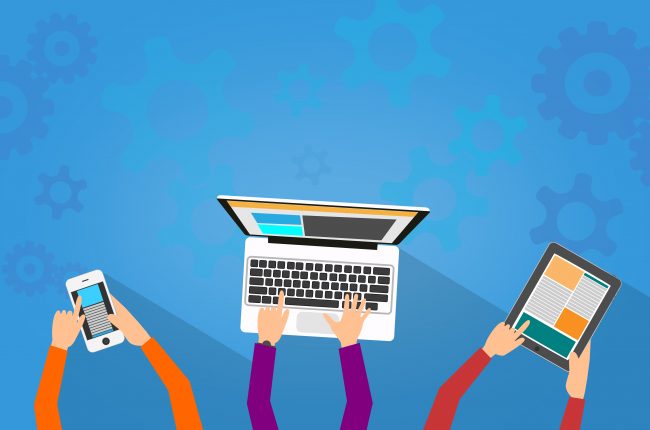8 Best Online Safety Tips for 2020
Most people assume that their bits of personal information aren’t important to hackers, but the truth is that everything about you is valuable. And it’s not just the hackers you should be careful about – even your ISP sells your data to third parties for marketing purposes. If you want to protect your details, you have to take certain measures. One of them is not to reveal too much information online. Here are some more safety tips for privacy-conscious netizens.

8 Best Online Safety Tips for 2018
8 Best Online Safety Tips for 2020
Take a look at the following tips and tricks that can help you boost up your online safety and security in 2020.
1. Don’t Forget To Log Out
Once you have finished using your internet banking account or social media account, be sure to log out. By simply logging out of your account, you can prevent intruders from accessing your personal information. Don’t be under the impression that closing the window will automatically log you out of your account.
Until you log yourself out, you run the risk of getting tracked and hacked. Logging out of your account is particularly important when you are accessing the service on an unsecured public network or device. If you use social media on a friend’s device, it becomes absolutely necessary to log out.
2. Try not to Access Confidential Accounts on Public Devices or Networks
Do not access your social or online banking accounts on an unsecured public Wi-Fi account. Public networks are susceptible to getting hacked. They may also collect your data and send it to third parties.
Rogue networks may intercept your traffic and steal passwords. To reduce your risk of getting tracked, avoid accessing your accounts from public Wi-Fi networks. And if you absolutely must use a public Wi-Fi, use it with a reliable VPN.
3. Use A VPN
A VPN will route all of your traffic through an encrypted tunnel. As a result, your ISP cannot keep track of your online activities. Even if a hacker manages to intercept your data, they cannot make sense of the encrypted messages.
By using a VPN, you can gain access to geographically restricted content from any part of the world. A VPN will hide your true IP address and prevent surveillance agencies or your ISP from finding out your true identity. This way you can surf the web privately and anonymously.
4. Do Not Give Your Personal Info In Exchange For Prizes
Companies often ask you to enter your personal information or email address in exchange for an opportunity to enter a contest or unlock some locked content. If you assume that giving your email address is not such a big deal, you’re in for a big surprise.
They are not collecting your personal details for fun. They use your information for marketing purposes. They may even sell it to third-party advertisers for revenue.
5. Think Twice Before Sharing Your Location
Who does not want to let the whole world know that they are holidaying at a luxury resort or dining at a fancy restaurant? Most of us have the habit of sharing our location online. Whenever we enter a great place, we post status updates and pics on Facebook and Instagram.
Unfortunately, this practice can sometimes land us in trouble. When you use the geotagging feature, third parties can find out your actual location and cause you some real harm. For example, a burglar may get to know that you’re out partying and there’s nobody home.
6. Beware of Suspicious Emails
We all receive fishy emails every now and then. Make sure you don’t open these emails or click any links inside it. By clicking links or downloading their content, you might install malicious software on your computer. Just delete these emails and don’t be tempted to reply to them.
You will probably want to ask them to remove you from their list. However, by simply replying to them, you are confirming that your email is indeed active. Another pitfall is that when you reply to these emails, your email provider will most probably assume that you find these emails useful, so it will not label them as spam. If you find spammy emails in your inbox, label them as spam and delete them.
7. Use a Strong Password
Cybercriminals try every trick in the book to steal your personal information. Make sure you don’t use generic passwords that are easy to break.
Even if you use a strong password, there is no guarantee that hackers cannot break it. However, a strong password will at least make things difficult for them. Ideally, your password should include letters, numbers, and special characters. Using the two-factor authentication is also a good idea.
8. Browse Anonymously
If you are concerned about your privacy, try using Tor. And be sure to use a VPN. Do not open shortened URLs on a public browser. A VPN will not just make you anonymous by changing your IP but it will also encrypt all your data so that it cannot be easily broken down by hackers.
8 Best Online Safety Tips for 2020 – Wrap Up
In an ever-evolving world, we spend more and more time browsing the web. It’s, therefore, crucial to keep all of your sensitive private data safe. Make sure to include keeping yourself safe online high on your New Year’s resolutions list.





